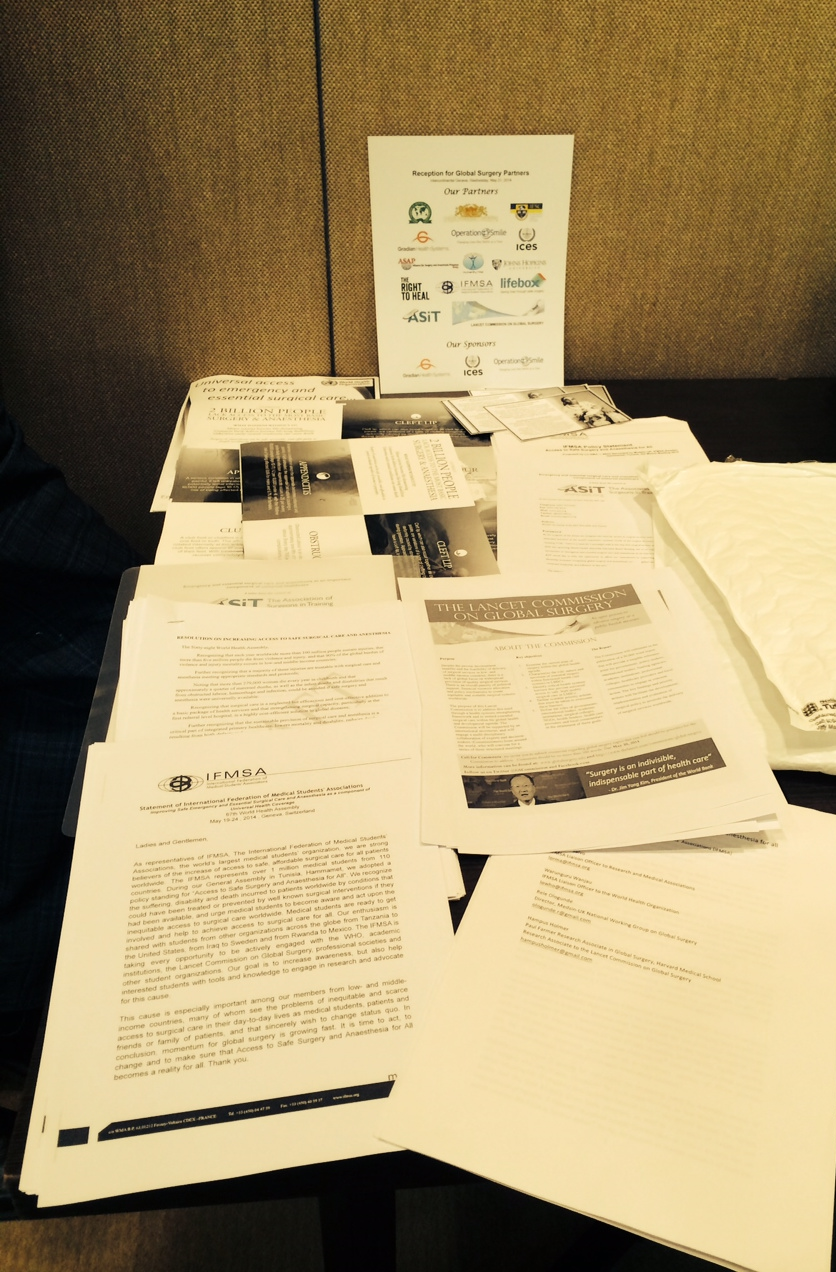ICES at the World Health Assembly 2014 Global Surgery and Anaesthesia Reception
On May 21st, ICES co-hosted a private reception along with other civil society partners in Geneva in support of the World Health Assembly side event “Improving Safe Emergency and Essential Surgical Care and Anaesthesia.”
Hosting partners and sponsors included: International College of Surgeons (ICS), World Federation of Societies of Anaesthesiologists (WFSA), International Federation of Surgical Colleges (IFSC), Gradian Health, Operation Smile, The Right to Heal, Johns Hopkins University, Alliance for Surgery and Anaesthesia Presence (ASAP), Humanity First, International Federation of Medical Students’ Associations (IFMSA), Association of Surgeons in Training (ASiT), and The Lancet Commission on Global Surgery
“Surgical conditions kill more in our countries than infectious diseases”
This was among the common and pivotal messages shared by the leadership of Zambia, Rwanda, Nigeria, Ghana, Bangladesh, and representatives from other LMICs earlier in the day at the official WHA side event attended by more than 200 individuals from over 45 member states; statements supported by the governments of USA, Australia, Egypt, and Mongolia, among others. This message was reiterated by the voices of those suffering from untreated surgical conditions through a screening of The Right to Heal later in the evening reception.
There was also a commitment to taking action and agreement on strategies to move the agenda to increase surgical access forward. Strategies included:
- Raising awareness- to encourage surgical services
- Improving data- for policy decision-making- surgical services and health workforce
- Building political commitment- investment in surgical services
- Strengthening the surgical workforce- infrastructure
- Fostering global collaboration and partnerships through WHO GIEESC
Not only is now the time for surgery to be included in the health policy agenda- “We’re 30 years too late,” The Honorable Rwandan Minister of Health Dr. Agnes Binagwaho strongly stated at the WHO side event.
There was also acknowledgement by the speakers and attendees that a lack of surgical access to emergency and essential surgeries has been an issue impacting advances in global health for more than thirty years. Without increased global access to safe anaesthesia and essential and emergency surgeries, advances in universal health coverage will be incomplete.
There was agreement between the stakeholders who gathered at the Global Surgery and Anaesthesia reception that it was time to take collective action to ensure access to safe anaesthesia and emergency and essential surgery regardless of economics or geography. It was also emphasized that although momentum is growing, we should not be complacent. The Executive Board meeting next week will ultimately decide if the proposal will move up to be considered as a resolution at the WHA 68 next year. Continued advocacy is important from all stakeholders.






















